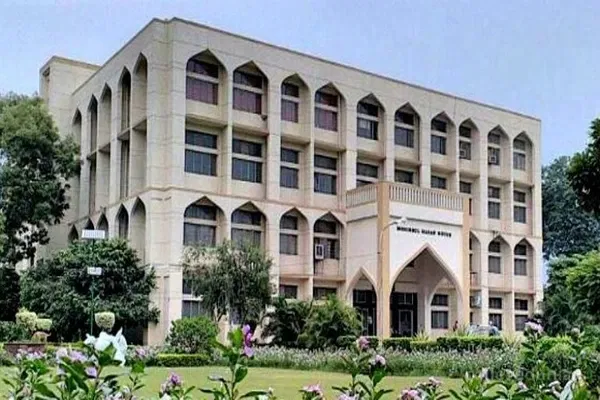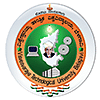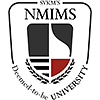MA Economics Syllabus and Subjects

The MA Economics syllabus aims to provide comprehensive knowledge in the fields of banking, financial management, financial consultation, trading, stockbroking, teaching, etc. MA Economics subjects cover topics, such as comparative economic systems, money and banking systems, international economics, quantitative analytical techniques, etc.
MA Economics course helps students develop skills in regression analysis, autoregressive integrated moving average (ARIMA) models, cost-benefit analysis, computational economics, etc., which enables them to get jobs like data analyst, economic research analyst, regional planner, etc.
Table of Contents
Semester-Wise MA Economics Syllabus
MA Economics syllabus encompasses a detailed understanding of the core concepts of economics. The semester-wise MA Economics syllabus focuses on studying the various concepts of banking, finance management, international economics, quantitative theory, demand & supply, etc. Listed below is the semester-wise MA Economics syllabus:
First Year MA Economics Syllabus
MA Economics 1st year syllabus covers fundamental topics like consumer theory, producer theory, Keynesian and classical economics, static and dynamic models, national income accounting, business cycle types, etc. Given below is the MA in Economics syllabus for the first year:
| Semester I | Semester II |
| Microeconomics | Financial Economics |
| Mathematical & Statistical Economics | Econometrics |
| Macroeconomics | International Trade & Finance |
| Development Economics | Indian Economy |
| Electives | Electives |
Second Year MA Economics Syllabus
MA Economics 2nd year syllabus focuses on advanced topics like game theory, general equilibrium, advanced labor economics, advanced panel data techniques, behavioral economics, etc. The second-year MA in Economics syllabus is given below:
| Semester III | Semester IV |
| Public Economics | Research Methodology |
| Environmental Economics | Entrepreneurship |
| Electives | Electives |
| Project | Computer Application / Project |
MA Economics Subjects
MA Economics subjects are a combination of various topics related to business, commerce, and finance such as Macro & Microeconomics, Econometry, Accounting, and International & Financial Economics. Elective subjects in MA Economics are introduced within the first semester itself to prepare the students for the tedious syllabus duration. Some of the core & elective MA Subjects are given below:
MA Economics Core Subjects
The MA in Economics subjects contains core topics that are mandatory and essential to study irrespective of specialization. Some of the core subjects under the MA Economics syllabus are given below:
- Microeconomics
- Macroeconomics
- Mathematical Economics
- Public Economics
- Econometrics
- Indian Economy
- Public Economics
- Economic Growth and Development
MA Economics Elective Subjects
The MA Economics elective subjects are not to be studied by all the aspirants. The subjects are optional and can be selected as per the choice of the MA Economics postgraduates. Some of them are given below:
- Environmental Economics
- Labor Economics
- Agricultural Economics
- Industrial Organization
- Financial & Applied Econometrics
- Spatial Econometrics
- Behavioral Economics
- Data Analysis for Social Sciences
- Banking, Insurance & Finance
- Game Theory
- Health Economics
- Law & Economics
MA Economics Subjects in Detail
MA Economics syllabus consists of a wide range of subjects on various economics like public economics, health economics, development economics, mathematics, and social science concepts. Some of the MA Economics subjects are discussed below:
| MA Economics Subjects | Topics Covered |
| Microeconomics | Consumer Behaviour, Theory of Production, and Costs Technology of production, Introduction to perfect and imperfect markets, Uncertainty and interdependence, General Equilibrium |
| Macroeconomics | National Accounts System, Keynesian system, Monetarists, New Classical Economics and New Keynesian, Monetary Policy, Fiscal and Monetary Policy, The Quantity theory of money (Fisher and Cambridge) |
| Public Economics | Fundamental theorems of welfare, Optimal Provision of Public and Private Goods, Principles of Taxation, Nature & Composition of Public Expenditure, The Tiebout Model. Fiscal Federalism in India |
| Economic Growth and Development | Structural Characteristics of Developing Countries, Economic Inequality, Rostow’s Stages of Growth, Keynesian Model, Romer Model, Basic Elements of the Schumpeterian Model |
| International Trade and Finance | Theories of International Trade, Trade Policy, Balance of Payments, International money and foreign exchange market, types and causes of the disequilibrium income approach |
| Econometrics | Econometrics and Economic Data, Multiple Regression Analysis, Heteroskedasticity, More on Specification and Data Issues, Functional Form Misspecification, Multiple Regression Analysis with Qualitative Information |
College-Wise MA Economics Syllabus
The M.A Economics syllabus varies depending on the curriculum and course structure of the university. The common structure includes core subjects, research projects, internships, practicals, etc. Students can obtain PDFs of the MA Economics syllabus from the relevant university websites in order to fully comprehend it. The M.A. Economics syllabus for prestigious colleges is shown below:
Jamia Milia Islamia University MA Economics Syllabus
M.A. Economics syllabus at Jamia Milia Islamia University focuses on specialized topics like Financial Economics, Environmental Economics, Development Economics, and International Economics. Below listed is the semester-wise MA in Economics syllabus at Jamia Milia Islamia University:
| Semester I |
Semester Ⅱ |
| Micro-Economics Principles | Financial Economics |
| Macro Economics Principles | Basics of Econometrics |
| Mathematics Fundamentals | Labor Economics |
| Statistics Basics | Understanding Environmental Economics |
| Understanding Rural Economics | Welfare Economics |
|
Semester Ⅲ |
Semester Ⅳ |
| Basics of Indian Policy | Fundamentals of Growth Economics |
| Statistical Data Analysis | Development Economics |
| Understanding International Trade | Agriculture Economics (Elective) |
| Financial Econometrics (Elective) | International Finance (Elective) |
| Understanding Time Series Analysis (Elective) | Computer Application in Economics (Subject-Specific Elective) |
| Applied Predictive Modeling (Elective) | Project Work |
Sharda University MA Economics Syllabus
MA Economics syllabus at Sharda University covers topics in fields like urban economics, corporate finance, financial economics, computer application, etc. The semester-wise MA in Economics syllabus curriculum offered at Sharda University is listed in the table below:
|
Sharda University MA Economics 1st Sem Syllabus |
Sharda University MA Economics 2nd Sem Syllabus |
| Micro and Macro Economic Principles | Economic Development and Growth |
| Economics Statistics | Agriculture Economics (Elective) |
| Econometrics Fundamental | Policies in Agriculture (Elective) |
| Practicals | Agriculture Finance (Elective) |
| Economics Computer Application | Agriculture Marketing (Elective) |
| - | Corporate Finance (Elective) |
| Sharda University MA Economics 3rd Sem Syllabus | Sharda University MA Economics 4th Sem Syllabus |
| International Finance | Urban Economics Fundamentals |
| Education Economics | Health Policy and Economics |
| Agriculture Economics Fundamentals | Global Indian Economy (Elective) |
| Energy Policy and Economics (Elective) | Monetary Policy (Elective) |
| Panel Data Econometrics (Elective) | Dissertation |
| Research Methods | - |
| Summer Internship | - |
Course Structure for MA Economics
The syllabus of MA Economics is structured in a manner to provide the students with an in-depth critical approach to the concepts of economics and relevant areas of finance, marketing, writing, and trading. The MA Economics syllabus course structure is listed below:
- IV Semesters
- Core Subjects
- Elective Subjects
- Research Project
- Practicals
MA Economics Teaching Methodology And Techniques
The MA Economics course is both theoretical and pragmatic. The different methodologies endow a pragmatic sense of understanding of the subject matter along with providing real-time professional experience to the students. The various methodologies and techniques in the MA Economics syllabus are listed below:
- Lecture Based Teaching
- Individual Projects
- Group Projects
- Conceptualized Learning
- Guest Speakers in Seminars
- Internships
MA Economics Projects
Students of MA Economics are expected to complete various projects assigned to them in the 2-year-long duration of the course. The MA Economics project topics are a launching pad for the students who gather real-time experience. Listed below are some of the popular MA Economics project topics:
- Role of Medium And Small Businesses In Fighting Poverty
- The Impact Of Taxation on The Economy Of A Third World Country
- Impact of Foreign Direct Investment on Poor Nations
- Impact of Commercialisation on Rural Economies
- Understanding And Analyzing The Failure Of Global Economic Organizations
- The Role of AI In Economic Development
Reference Books for MA Economics
MA Economics books cover topics and fields like agricultural economics, macroeconomic models, business cycle analysis, risk management, financial management, international economics, etc.
The books in the MA Economics syllabus act as a foundation for understanding the varying concepts of economics. Listed below is a list of reference books for Master of Arts in Economics:
| Name of the Books | Topics Covered | Authors |
| Macroeconomics: Theory and Policy | Aggregate economic analysis, fiscal and monetary policies, inflation, etc. | WH Branson |
| Principles of Mathematical Economics | Mathematical modeling in economics, optimization techniques, game theory, etc. | Shapoor Vali |
| Foundations of Economics | Micro and macro-economic principles, econometric methods, statistical analysis, etc. | Andrew Gillespie |
| Macroeconomic Analysis | Advanced macroeconomic models, dynamic stochastic general equilibrium (DSGE) modeling, economic forecasting, etc. | Edward Shapiro |
| Fundamentals of Farm Business Management | Agricultural economics principles, farm production, resource management, risk and uncertainty in agriculture, pricing strategies for farm products, etc. | Kapur and Johl |
Top MA Economics Colleges
Top Arts Entrance Exams
MA Economics Fee Structure
FAQs on MA Economics Syllabus and Subjects
Q: What is the syllabus of 1st year MA Economics?
Q: What are the core subjects of MA Economics?
Q: What are the projects in MA Economics?
Q: What are the important books for MA Economics?
Q: Can I do MA in economics without BA?
Q: What are the advanced econometric techniques taught in MA Economics final year subjects?
























